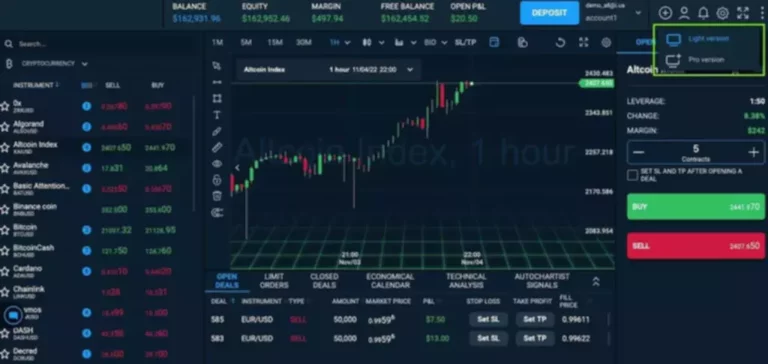Content
Crypto futures ETFs, the second kind, have gained traction as an alternative to directly investing in these digital assets. For instance, a bitcoin futures ETF uses futures contracts to mimic the fluctuations in the price of that currency. Decentralized exchanges do not require customers to fill out know-your-customer (KYC) forms, offering privacy and anonymity to users. Since DEXs don’t exercise censorship, more cryptocurrencies and digital assets are available than through a CEX. It’s hard to beat VALR in terms of its low fees, due to its commitment Digital wallet to fair and transparent pricing.
Understanding Centralized and Decentralized Exchange
For tax purposes, cryptocurrencies are considered property by the IRS, similar to stocks and bonds. Typically, you’ll https://www.xcritical.com/ be taxed when you sell or trade crypto for more than you originally bought it. Short-term capital gains of less than a year are taxed at your regular income tax rate.
Crypto Wallet vs. Exchange: Which Suits Your Cryptocurrency Strategy
On the other hand, cryptocurrency brokers generally use a different approach called leverage trading. This allows their clients to use the funds available in the broker’s account to make deposits and trades. Traders can then place trades with a higher value than the funds they have deposited – a strategy called “leveraging”. This approach allows traders to potentially make larger profits, but it also increases the risk of loss. So, the main difference between exchanges and brokers is that exchanges allow for direct swapping, or trading, of cryptocurrencies, while brokers provide leverage trading. The top cryptocurrency exchanges allow you to buy, sell, and trade popular crypto trading demo app cryptocurrencies, NFTs, and other digital coins and tokens.
Cryptocurrencies could help investors beat inflation

If you have trouble, the company may have customer support staff that can help answer your questions. Wallets may charge network fees for transactions, while exchanges might have fees for trades, deposits, and withdrawals. Choose the service that offers a fee structure that aligns with your intended usage. Unlike a traditional physical wallet that holds your cash, a crypto wallet operates entirely differently.
Pros and cons of cryptocurrency
And before you get too far, it is worth noting that the barriers to entry can be high and the probability of success relatively low without major investment. Cryptocurrency is a relatively risky investment, no matter which way you slice it. Generally speaking, high-risk investments should make up a small part of your overall portfolio — one common guideline is no more than 10%.
Here are a few factors to consider as you evaluate Fidelity’s crypto offerings. With countless platforms available, here’s a step-by-step guide to help you evaluate and select the best one for your trading journey. There are measures you can take to make things even more difficult for potential hackers, such as using what’s called a non-custodial wallet. Keep in mind that when you buy using a bank account, the transaction typically takes 3 to 5 business days to complete, according to Coinbase.
- However, many would like to avoid the complex or time-intensive world of digital wallets and crypto exchanges.
- By facilitating the transaction through a developed, centralized platform, centralized exchanges offer higher levels of comfort.
- Now that you’re aware of the most important factors to consider when choosing an exchange, you’ll likely have to work out which ones you should prioritize.
- This ensures that even if your email is hacked, your funds on the exchange cannot be withdrawn.
- However, this constant connectivity makes them more susceptible to cyber-attacks and unauthorized access.
- Lastly and most importantly, most CEXs will hold your digital asset as a custodian in their own digital wallet rather than allow you to store your private keys on your own digital wallet.
Your considerations when choosing a crypto trading platform should focus primarily on security, market access, mobile buy and sell options and global accessibility. The right platform should support your trading strategy and meet the regulatory requirements of your location. Crypto brokers usually offer a curated selection of coins and tokens, often based on their popularity and market capitalisation.
It eschews mining in favor of a process known as staking, in which people put some of their own cryptocurrency holdings at stake to vouch for the accuracy of their work in validating new transactions. Some of the cryptocurrencies that use proof of stake include Cardano, Solana and Ethereum (which is in the process of converting from proof of work). Proof of stake is another way of achieving consensus about the accuracy of the historical record of transactions on a blockchain.
With all the excitement surrounding Bitcoin’s recent climb to over $100,000, many investors — new and experienced alike — are wondering if it’s time to hop on the crypto bandwagon. If you don’t have the resources to compete with the heavy hitters, one option is joining a mining pool, where users share rewards. This reduces the size of the reward you’d get for a successful block, but increases the chance that you could at least get some return on your investment. Mining cryptocurrency is generally only possible for a proof-of-stake cryptocurrency such as Bitcoin.
The first thing these new traders need to establish is whether they should choose a cryptocurrency exchange versus a broker. Crypto exchanges and brokers represent the two different approaches you can take to access the market and make trades. Both options come with slightly different trading scenarios, and both have their pros and cons.

In sum, both stocks and cryptocurrencies offer both pros and cons for traders and investors. Stocks, grounded in tangible entities, provide a sense of security with regulatory oversight, potential dividends, and an established market presence. Cryptocurrencies, however, bring the allure of high returns, constant market access, and exposure to technological innovations.
Investors’ appetite for riskier investments like crypto, for example, waned in 2022 when the Federal Reserve was hiking interest rates to combat inflation. Investors instead turned toward investments perceived as being safer, like gold, value stocks and TIPs (Treasury Inflation-Protected Securities). More recently, President-elect Donald Trump’s victory and his support of the crypto market have boosted prices. Bitcoin is up 126% year to date, and it hit a new all-time high of $102,000 in December. Investing in crypto is something you really should take time to consider, including weighing the pros and cons.
Fidelity Crypto does not offer some of the advanced features available on competing exchanges. It doesn’t allow staking, a process that allows owners of some cryptocurrencies to earn rewards similar to interest. And while you can now trade Bitcoin, Ethereum and Litecoin nearly 24/7, there’s still a one-hour window between 12 a.m.
Depending on the crypto trading platform, you can have access to different cryptocurrencies and markets, which allows you to build a diversified portfolio and react flexibly to market movements. There’s no perfect solution for trading cryptocurrency, which means even the most well-established cryptocurrency exchanges come with their downsides. Cryptocurrency exchanges offer various benefits to traders and crypto investors.
